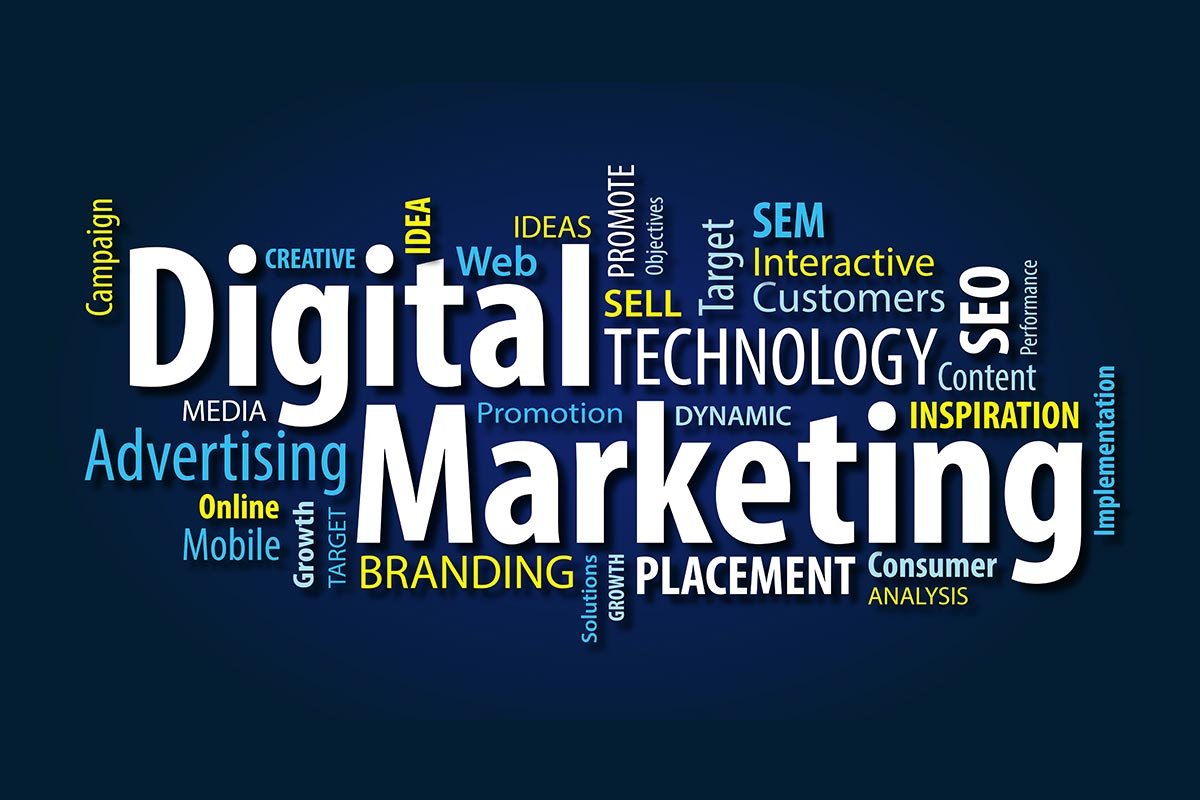In today’s fast-paced digital landscape, where everyone and everything is interconnected through the web, businesses are presented with an unprecedented opportunity to reach their target audience more effectively. Welcome to the world of digital marketing, a dynamic and ever-evolving strategy that has transformed the way we promote products and services.

In this comprehensive guide, we’ll delve into the intricacies of digital marketing, exploring its various facets and providing you with valuable insights to navigate this exciting realm.
Introduction
Gone are the days when marketing solely relied on billboards, radio jingles, and TV commercials to capture consumers’ attention. With the advent of the internet, a revolutionary shift has occurred. Digital marketing, also known as online marketing, leverages the power of the internet to connect businesses with their target audience in a more personalized and engaging manner.
Digital marketing is not just about promoting a brand, it’s about building relationships and fostering connections.
The Evolution of Marketing
Traditional marketing methods were often costly, one-sided, and lacked precise targeting. Enter digital marketing, a game-changer that enables businesses to identify and reach their ideal customers with unprecedented accuracy. This evolution has democratized marketing, allowing even small businesses to compete on a global scale.
Key Components of Digital Marketing
Digital marketing comprises a spectrum of strategies, each catering to different aspects of online promotion. These strategies work in harmony to create a comprehensive online presence for a brand.
Search Engine Optimization (SEO)
SEO is the cornerstone of any successful digital marketing campaign. It involves optimizing your website’s content to rank higher on search engine results pages (SERPs) for relevant keywords. By strategically placing keywords in your content, meta descriptions, and headers, you can enhance your website’s visibility and attract organic traffic.
Pay-Per-Click (PPC) Advertising
PPC advertising allows businesses to place targeted ads on search engines and social media platforms. Unlike traditional advertising, you only pay when a user clicks on your ad. This method can yield rapid results and is highly measurable, making it a favorite among marketers.
Social Media Marketing
With billions of active users on various social media platforms, social media marketing has become indispensable. Engaging content, consistent posting, and interaction with the audience can significantly boost brand awareness and customer engagement.
Content Marketing
“Content is king” is a phrase often repeated in the digital marketing realm. High-quality, relevant content not only attracts visitors but also establishes your brand as an authority in your industry. This can include blog posts, infographics, videos, and more.
Digital marketing is the art of understanding exactly what your customers need and delivering it to them at the right time and place.
Email Marketing
Contrary to popular belief, email marketing is far from obsolete. Crafting personalized and valuable content for your email subscribers can foster strong customer relationships and drive conversions.
Influencer Marketing
Influencer marketing involves collaborating with individuals who have a significant online following. Their endorsement of your product or service can have a powerful impact on your target audience’s purchasing decisions.
Data Analytics in Digital Marketing
One of the most remarkable features of digital marketing is its data-driven nature. Analytics tools provide valuable insights into consumer behavior, helping marketers refine their strategies for better results.
The Synergy of Traditional and Digital Marketing
While digital marketing has taken the spotlight, traditional marketing still has its place. An integrated approach that combines both can create a powerful synergy, maximizing the reach and impact of your campaigns.
Measuring Digital Marketing Success
Measuring the success of your digital marketing efforts is essential. Key performance indicators (KPIs) like website traffic, conversion rates, and engagement metrics provide a clear picture of how well your strategies are performing.
The Future of Digital Marketing
As technology continues to evolve, so will digital marketing. Artificial intelligence, virtual reality, and even more sophisticated data analytics are set to shape the future of online promotion.
Conclusion
Digital marketing has transformed the way businesses connect with their audience, providing unprecedented tools and strategies for effective online promotion. By understanding and harnessing the power of SEO, social media, content, and data analytics, businesses can navigate this dynamic landscape and unlock remarkable growth in the digital age. Embracing the holistic approach of digital marketing will undoubtedly be the driving force behind success in the modern business world.

